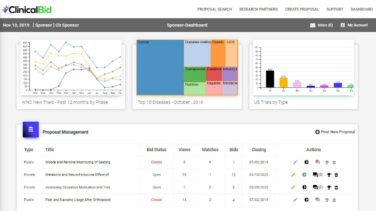CBD shops are popping up everywhere, selling everything from straight CBD oil, to CBD-infused drinks and snacks, to lotions and even pet supplements. Amidst the cannabidiol craze, it’s hard to separate fact from fiction. So what does CBD oil really do and how do we know?
- It’s important to understand that while cannabidiol is derived from a marijuana plant, it does not contain any THC, which is the agent in marijuana that causes a high. Because it is not a drug in this way, it is legal to sell, buy, and consume within any of the 50 states.
- There’s no doubt the CBD market is booming. The sudden fascination has raised the CBD research market to hundreds of millions of dollars and is expected to reach $20 billion by 2020 according to some analysts.
- CBD oil has been touted for its many health benefits, said to treat insomnia, anxiety, chronic pain and inflammation, and other serious physical diseases. While this may be true, the only clinical CBD studies have tested its treatment for pediatric epilepsy. These clinical trials have indeed proved cannabidiol to be an effect treatment for certain children with epilepsy, leading the FDA to approve the first cannabis-derived drug, Epidiolex.
- So does CBD oil work for other conditions? The answer is maybe. Single, independent studies have been done that seem to conclude that a dose of CBD might have other immediate health benefits, but is by no means a treatment or cure for any condition.
- Cannabidiol is often said to be a calming agent for those with anxiety. According to a study in the Brazilian Journal of Psychiatry, all 15 men given a 300 mg dose of CBD oil felt more relaxed prior to a public speaking event. The 27 remaining men who received higher and lower dosages didn’t feel calming effects. Small studies like these confirm that CBD probably has anti-anxiety effects, but they are not understood.
- Quite a few lab animal studies point to CBD also having anti-inflammatory and pain relieving effects. A study published in Pain found that CBD could block osteoarthritis pain and nerve damage in rats. Information on CBD oil’s effectiveness in relieving human pain remains purely anecdotal.
- There are many other health benefits companies selling CBD may market, but beware. CBD is currently sold in the U.S. as a supplement, which is a field that is almost completely unregulated by the FDA. The danger here isn’t simply unknown CBD side effects, but that companies can label products as containing CBD without any regulation or consequence for making false claims. Many products you’ll see on the market contain more or less CBD than is actually advertised on the label. Do your research and buy from tested companies before purchasing concentrated oils in particular.
- Until more research is carried out, take your CBD smoothies with a grain of salt. The FDA slapped Curaleaf Inc., a national CBD dispensary, with warnings against marketing CBD as a treatment for conditions as complex as cancer. Enjoy your CBD-infused products without falling into traps like these.








